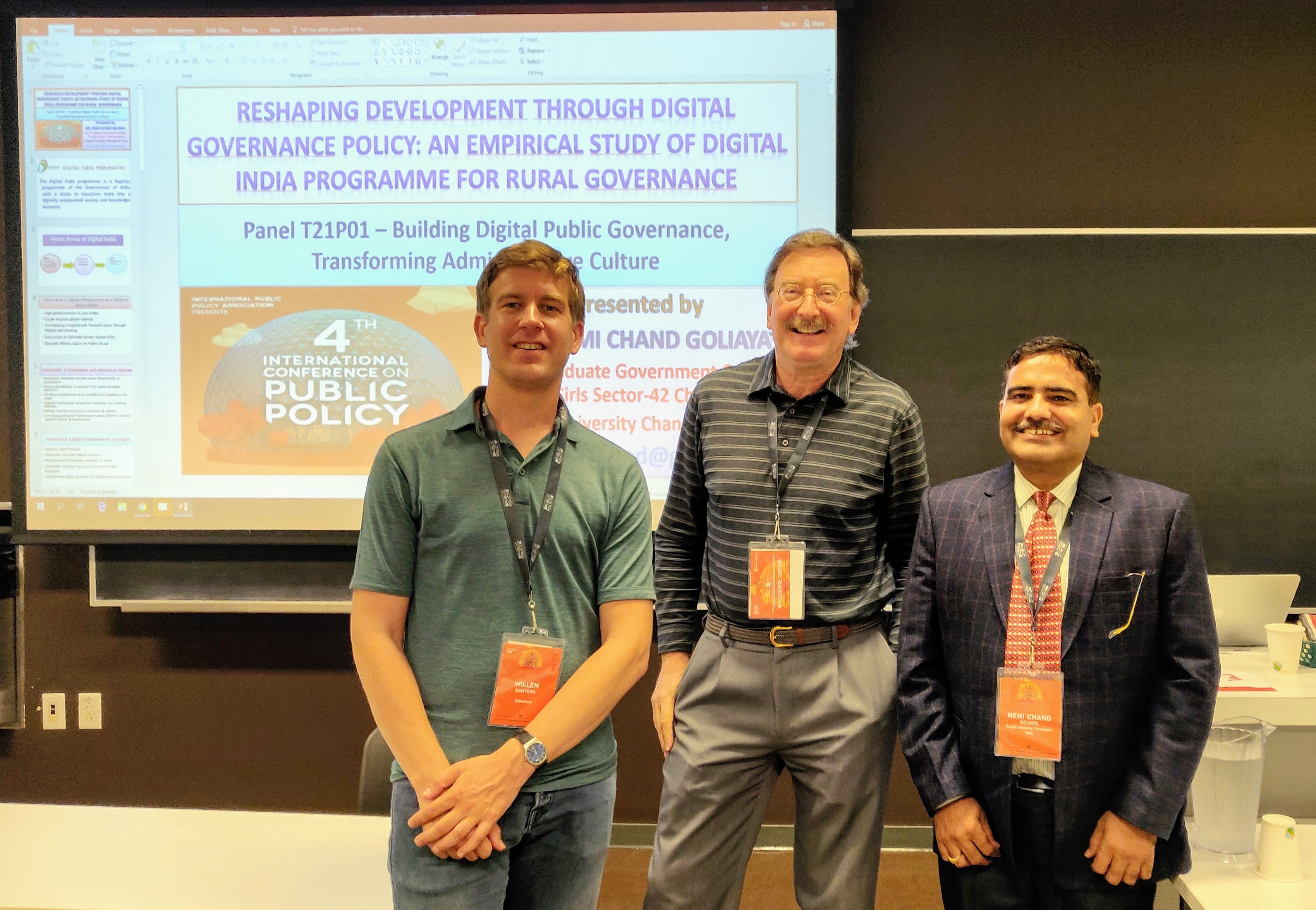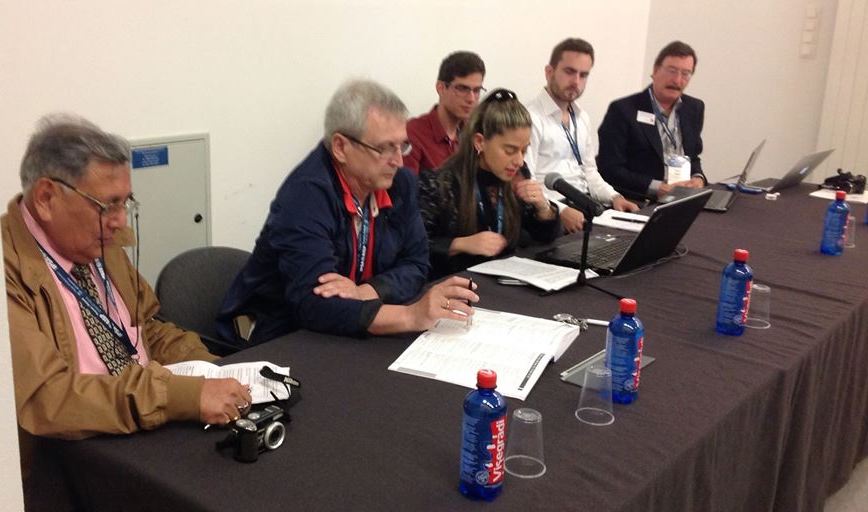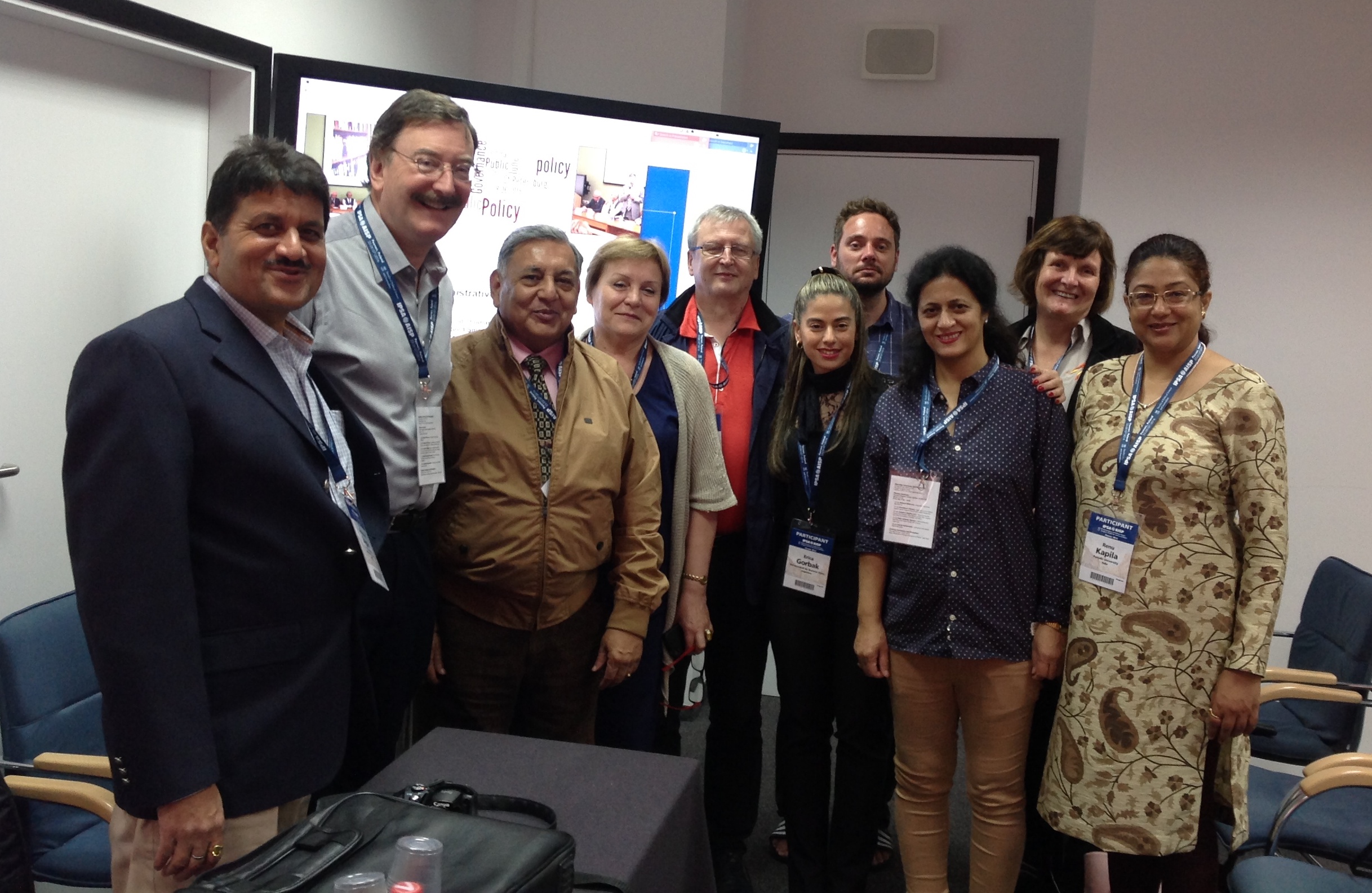
ICPP4 Montreal 2019: e-governance panel

IPSA Poznan 2016: Transparency panel

Business meeting at Posnan, 2016

Posnan 2016: book publication announcement

ICPP4 Montreal 2019: e-governance panel |

IPSA Poznan 2016: Transparency panel |

Business meeting at Posnan, 2016 |

Posnan 2016: book publication announcement |
IPSA RC 48: Research Committee on Administrative Culture
Panels sponsored by RC48 for the IPSA World Congress, Brisbane, 2018
48.01 Administrative Culture amid Issues of the New Nationalism, Borders, Margins, Post-Colonialism or Inequality
48.02 Developing Public Policy in Collaboration between the State and Civil Society Groups [followed by Business meeting in same room]
48.06 Transparency, Open Government, E-governance, Surveillance, Sous-veillance, and the Changing Culture of Administration
48.03 [cancelled] Governance and Administrative Culture in South Asian Countries
48.04 [cancelled] Governance of Public Policy, Culture, and Sustainable Development
48.05 [cancelled] Limiting Corruption and Upholding Ethics and Natural Justice in Administrative Culture in Developing Societies
(This unofficial arrangement is of course, subject to change. The official information is found at wc2018.IPSA.org. The business meeting for RC48 has been scheduled by IPSA for 23 July at 12:45-13:45 in room M7. Several papers were withdrawn in February, March and May 2018. Under IPSA rules, this necessitated combining panels to maintain a minimum of 4 papers per panel.)
48.01 Administrative Culture amid Issues of the New Nationalism, Borders, Margins, Post-Colonialism or InequalityThe rise of nationalist politicians across many democracies in recent years has revived the fears of De Tocqueville (1835) of the tyranny of the majority. In addition, flows of migrants across porous borders have raised issues of national identity and severely challenged free trade pacts. Refugees and ethno-religious minorities existing at the margins of society have also suffered waves of discrimination or expulsion. Post-colonial effects and widespread inequality also challenge bureaucracies in many societies. From all of these turbulent processes, how will administrative culture be changed? Papers are welcome on any of these topics, with preference given to those having impact beyond one country.
Date and time: 25 July 0900-1045, in M8
Chair: Dr. Jeremy Lewis
Discussant: Dr. Ashok Basu and Dr. Nittam Chandel
Panelists: (5 papers remaining)
Prof. Syeda Lasna Kabir (presenting) and Prof. Sk. Tawfique M. Haque
Ms. Manju Dalal
Dr. C. K. Gautam and Mr. Arunoday Bajpai (presenting) Paper uploaded
Prof. Miguel Rocha de Sousa (presenting) and Mr. António Cabeche Paper uploaded
Ms. Teena Karamveer [moved from 48.03 to 48.01] Paper uploaded
48.02 Developing Public Policy in Collaboration between the State and Civil Society Groups
There is renewed interest among scholars of public administration in exploring the possibilities of civic participation in policy-making and implementation. This varies from the White House wikis that encouraged participation online about policy proposals in the US, to the Russian attempts to provide some budget for civil society groups to conduct public administration. In western, pluralist democracies there are tens of thousands of civil society groups attempting to persuade administrators of policy -- but how are these developing in other countries, and with what effects? How much room is there in authoritarian regimes for state-civil society administration? Papers are welcome on any of these topics, with preference given to those having impact beyond one country.
Date and time: 23 July at 11:00-12:45 in room M7 [followed by business meeting in same room]
Chair: Dr. Leonid Smorgunov
Co-chair: Dr. Ashok Ranjan Basu
Discussant: Dr. Jeremy Lewis
Panelists: (4 papers remaining)
Dr. Tek Nath Dhakal and Dr. Narendra Raj Paudel (presenting) Paper uploaded
Dr. Andrey Dakhin (presenting) and Mrs. Elizaveta Solonchenko
Dr. Lorena Moscovich (presenting) and Dr. Melina Furman Paper uploaded
Dr. Nittam Chandel [moved from 48.03 to 48.02] Paper uploaded
48.06 Transparency, Open Government, E-governance, Surveillance, Sous-veillance, and the Changing Culture of Administration
From small beginnings in the 1970s with a movement for freedom of information and privacy laws, the transparency movement now encompasses the majority of nation states. Inquiry ranges from journalists' rights to information to officials' rights to privacy; from official email on private servers to online delivery of administrative services; and from surveillance by intelligence services to sous-veillance of police by citizens with cell phones. In this rapidly changing environment, what is the effect on administrative culture and practice? Papers are welcome on any of these topics, with preference given to those having impact beyond one country.
Date and time: 23 July 1530-17:15
Chair: Dr. Nittam Chandel
Discussants: Dr. Andrey Dakhin
Panelists: (5 papers remaining)
Dr. Saraswathi Unni Paper uploaded
Prof. Leonid Smorgunov Paper uploaded
Dr. Ashok Ranjan Basu Paper uploaded
Prof. Jeremy Lewis Paper uploaded
Dr. Surendra Kumar [moved from 48.03 to 48.06] Paper uploaded
48.03 Governance and Administrative Culture in South Asian Countries
panel cancelled and remaining papers transferred
48.04 Governance of Public Policy, Culture, and Sustainable Development
panel cancelled and remaining papers transferred
48.05 Limiting Corruption and Upholding Ethics and Natural Justice in Administrative Culture in Developing Societies
panel cancelled and remaining papers transferred